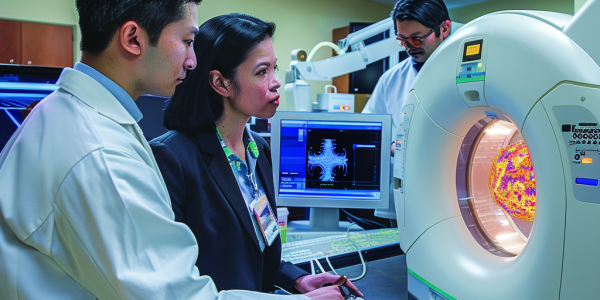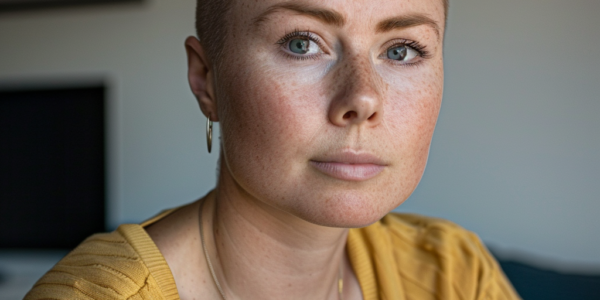Breakthrough MRI Technology Predicts Ovarian Cancer Treatment Response
A groundbreaking study from the University of Cambridge reveals a revolutionary MRI-based imaging technology, hyperpolarized carbon-13 imaging, that can predict ovarian cancer tumor responses to treatment. This innovative method enhances MRI signals by up to 10,000 times, enabling rapid assessments of treatment effectiveness, distinguishing between tumor subtypes, and personalizing cancer care. With the ability to evaluate responses to chemotherapy within 48 hours, this advancement promises to transform ovarian cancer treatment and improve patient outcomes.
Mercy BioAnalytics Unveils Breakthrough Ovarian Cancer Screening Test
Mercy BioAnalytics has made a breakthrough in ovarian cancer detection with the publication of two studies in the Journal of Molecular Diagnostics. Their innovative Mercy Halo™ screening test offers a novel approach for early detection, crucial for improving survival rates among postmenopausal women. This advanced technology leverages tumor-derived extracellular vesicles, promising a sensitive and cost-effective method for identifying ovarian cancer at earlier stages. As ovarian cancer remains a leading cause of cancer-related deaths in women, the Mercy Halo platform could revolutionize screening practices and significantly impact women’s health.
Student shares harrowing experience of being misdiagnosed with cancerous tumour
Read about Mia Robins’ harrowing experience of being misdiagnosed by doctors, leading to a cancerous tumour the size of a melon filled with hair and teeth. Despite alarming symptoms, Mia’s condition was repeatedly misdiagnosed until she was eventually diagnosed with ovarian cancer. Mia’s story emphasizes the importance of advocating for one’s health and challenging medical professionals when necessary.
Mother of Two Plans Run to Raise Funds for Ovarian Cancer Research
Read about Ashley Bigelow’s inspiring journey of overcoming ovarian cancer and organizing a run to raise funds for cancer research. Join Team Biggs on Mother’s Day in Lakeshore to support this important cause and make a difference in the fight against ovarian cancer.
Recognizing Early Symptoms of Ovarian Cancer Can Save Lives
Learn about the key symptoms of ovarian cancer and why early detection is crucial for successful treatment. Bloating, feeling full quickly, and abdominal pain are just a few red flags to watch out for. Stay informed and seek medical attention promptly to improve survival rates.
Ovarian Cancer Does Not Discriminate: A Young Woman’s Inspiring Journey
Read Emma Colledge’s powerful message about her battle with ovarian cancer at 23, defying the assumption that it only affects older individuals. Despite initial misdiagnosis, Emma’s persistence led to a full recovery, emphasizing the importance of being vigilant about one’s health. Her inspiring journey serves as a reminder that ovarian cancer can affect individuals of any age, urging everyone to listen to their bodies and seek medical attention if they notice any unusual symptoms.
Groundbreaking Treatment Hope for Ovarian Cancer: ‘We’ll be able to actually make a vaccine to help fight that disease’
Groundbreaking treatment for ovarian cancer offers hope as Mater Research scientists work on developing a vaccine to fight the disease and prevent recurrence. With $670,000 in funding raised by the Ovarian Cancer Research Foundation, the community’s efforts are making a difference in the fight against this formidable illness.







